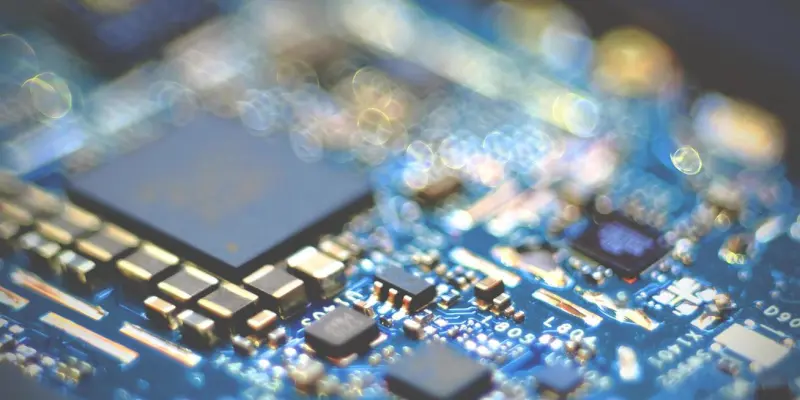In the ever-evolving landscape of technology, AMD’s introduction of the Epyc 4005 series marks a pivotal moment for small and medium-sized businesses (SMBs) and hosted IT service providers. As part of AMD’s strategic expansion into a previously underserved segment, these entry-level server CPUs offer an attractive cost-to-performance ratio. Nestled within AMD’s product lineup, the Epyc 4005 series provides a stark contrast to the high-performing Epyc 9000 series. This new offering, marked by a scalable core range between six and 16, aims to fulfill the computing needs of businesses that do not require the brute power of high-end models. Its compatibility with the AM5 socket signifies a smart move to appeal to the immediate requirements of this business category.
Targeting the SMB and IT Service Provider Segment
Bridging a Notable Gap in AMD’s Portfolio
For years, AMD predominantly catered to high-performance computing domains, often leaving smaller enterprises and dedicated hosting services without a competitive option in their lower-tier range. The Epyc 4005 series rectifies this, providing a streamlined pathway for these organizations to upgrade their server capabilities without significant financial strain. This approach allows SMBs to enhance their productivity through better server support, thus empowering them to compete more effectively in their respective markets. The cost-effective nature of these processors makes them especially appealing to businesses that are keen on optimizing operational costs while keeping technological standards high. Furthermore, the entry-level series effectively addresses a gap that previously saw many SMBs gravitating towards alternatives, often having to make do with older and less efficient technologies. The Epyc 4005 therefore emerges as not just a product but a well-crafted solution. Its design facilitates a transition towards modern IT infrastructure, propelling AMD’s ambition to dominate this niche market. The appeal is not solely based on price but also on the tangible performance improvements it hosts, especially for those operating in fields relying heavily on virtualization, thereby streamlining their workflows.
Performance Enhancements and Tech Specifications
Paired with AMD’s emphasis on faster memory capabilities, the Epyc 4005 series significantly enhances power efficiency and overall performance—qualities that resonate well with SMBs running traditional on-premises applications like Exchange servers and content management systems. This line of processors takes inspiration from its predecessor, the Epyc 4004 series, yet magnifies its core functionalities by harnessing AMD’s Zen 4 architecture. This evolution indicates AMD’s commitment to leverage technological advancements, positioning the Epyc 4005 as a progressive tool in organizational growth, capable of supporting increasingly complex applications. The introduction of these chips also highlights AMD’s adeptness at forecasting market shifts, especially in tandem with the growing demand for energy-efficient operations. As companies lean towards eco-friendly technologies, the Epyc 4005’s power efficiency becomes a vital selling point. This necessity for greener options is compounded by the need to run day-to-day tasks efficiently without elevating overhead costs through energy consumption. By addressing both these demands, the Epyc 4005 aligns with global sustainability trends while ensuring seamless performance upgrades.
AMD’s Strategic Partnerships and Market Impact
Global Outreach and Adoption
AMD’s collaborative ventures with big names like Lenovo, Supermicro, MSI, and Gigabyte signify the broad support this new chip series is garnering within the industry. These partners are pivotal to its success, providing the necessary hardware ecosystems that facilitate broader deployment and adoption. Such alliances highlight the confidence these industry leaders have in AMD’s innovation and foresight. Moreover, European hosted service providers, including Hetzner and OVHcloud, heralded initial responses, emphasizing the Epyc 4005’s readiness for commercial explosion in diverse markets.
Simultaneously, U.S. and Asian providers have entered the fray, showcasing the chip’s universal appeal. The availability of Epyc 4005-powered compute instances from companies like Vultr marks a milestone in gaining competitive ground against Intel’s offerings. This widespread interest from service providers underlines how AMD’s strategy effectively taps into the increasing demand for versatile server processors. By offering a viable alternative to Intel, AMD ensures that its market presence remains robust, continuously evolving to meet varying technological demands while illustrating a bold challenge in the traditional processor market.
Long-Term Industry Implications
Looking ahead, the Epyc 4005 series’ launch marks the beginning of potentially significant shifts within the semiconductor landscape, particularly in the realm of entry-level server CPUs. AMD’s strategic shift not only demonstrates a keen understanding of emerging business needs but suggests that innovation tailored to specific market gaps can yield substantial benefits. The diverse functional capabilities and efficient design could set new benchmarks for what SMBs and hosting providers consider essential in processor technology. By doing so, AMD reinforces its position as a formidable competitor and thought leader, pushing boundaries that encourage others to pursue fresh avenues in tech ecosystems.
Furthermore, the expanded reach facilitated through strategic partnerships and AMD’s aggressive targeting of regional markets could accelerate transformations in how digital infrastructure is perceived and implemented. As businesses gravitate towards more customized and efficient systems, the Epyc 4005 stands as a testament to AMD’s ability to foster industry-wide advancements that celebrate efficiency, performance, and sustainability as foundational elements of future-focused solutions.
Conclusion: A Forward-Thinking Launch
In the rapidly changing world of technology, AMD has made a notable impact by launching the Epyc 4005 series, specifically designed for small and medium-sized businesses (SMBs) and hosted IT service providers. These entry-level server CPUs are part of AMD’s strategic outreach to a previously overlooked market segment, promising an appealing balance between cost and performance. Sitting within AMD’s extensive range of products, the Epyc 4005 series provides a distinct contrast to the powerful Epyc 9000 lineup. With a core count ranging from six to 16, these CPUs are tailored to meet the specific computing needs of businesses that don’t demand the intense power delivered by high-end models. Furthermore, their compatibility with the AM5 socket highlights AMD’s smart approach in addressing the immediate demands of this category, offering a solution that blends efficiency with affordability. This move underscores AMD’s commitment to catering to diverse business needs, ensuring affordable technology access.

